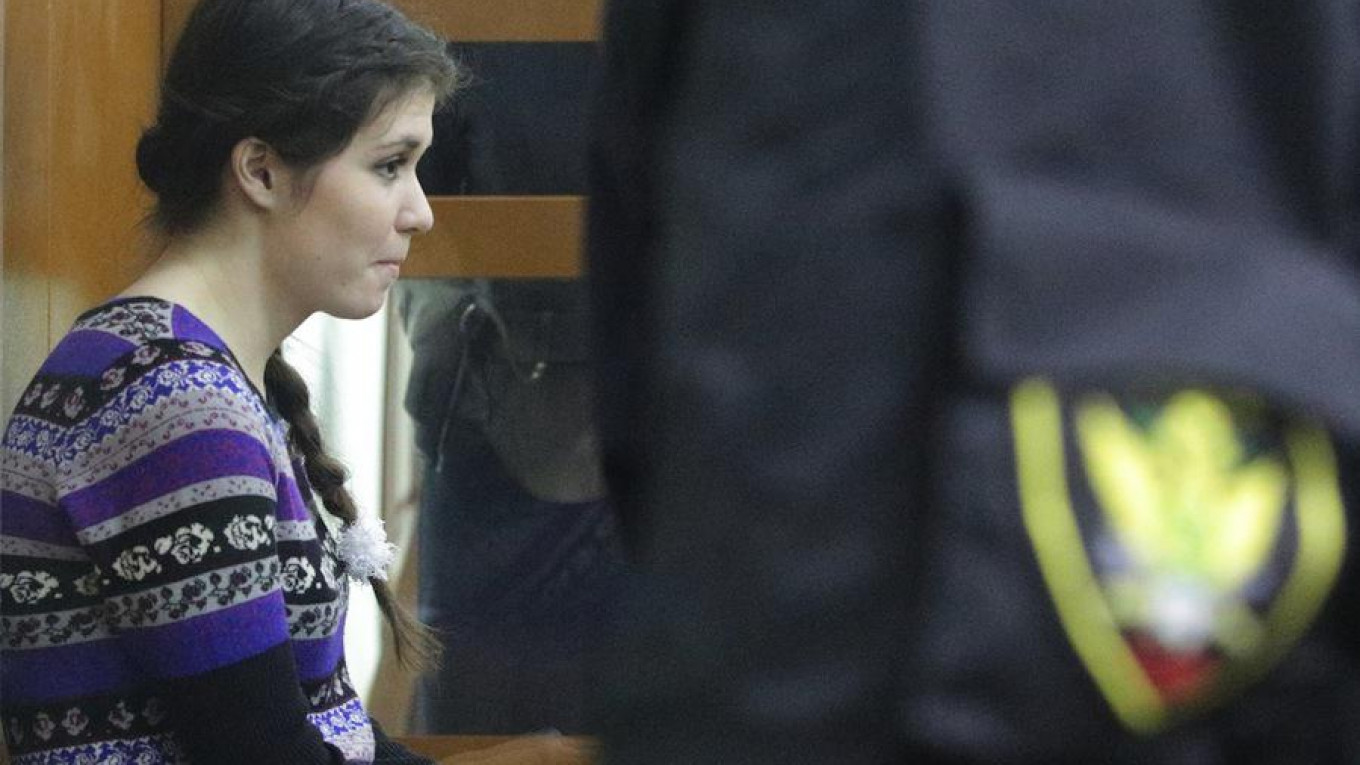On Dec. 22, Moscow’s District Military Court will hand down a verdict to Varvara Karaulova, the Moscow student accused of attempting to join Islamic State, Russian media reported Wednesday.
If convicted, Karaulova, who legally changed her name to Alexandra Ivanova last year, faces up to five years in prison.
One week after Karaulova went missing in May 2015, she was detained in Turkey alongside a group a group of men and women traveling to Syria without IDs. After the girl’s father retrieved her from Turkey, Karaulova helped Russian authorities communicate with the IS recruiter in Syria she had run off to marry.
Russian investigators initially said they had no plans to press charges against the student. But, in October 2015, she was arrested and detained pending an investigation.
Read the full account of Varvara Karaulova’s story: IS Fighter or Girl in Love: The Story of Varvara Karaulova
The defense maintains that Karaulova ran off to Syria, blind with love, to marry her fiancé, who turned out to be an IS recruiter. She fully realized she had made a mistake after returning to Moscow, they say.
The prosecution, however, claims Karaulova intended to join the Islamic State terrorist organization and contacted the recruiter without FSB supervision even after returning to Moscow.
In her closing statement in court on Wednesday, Karaulova again said she made a mistake. “I want to stress one thing in particular. I communicated with a man I loved, not with a member of some organization. I’m sorry this love turned out to be unhealthy,” she was quoted by the Life website as saying.
“I compare it to alcoholism and believe it’s the first step towards healing. I wanted to turn this page over and didn’t contact him [the alleged IS recruiter Airat Samatov] until the very day of [my] arrest,” she said.
A month ago, however, Karaulova testified to maintaining contact with the recruiter even after returning to Russia.
According to her lawyer Ilya Novikov, after returning to Moscow the girl tried to return to “normal life.” She took up jogging and began learning Korean. Nonetheless, in August 2015, two months before her arrest, Karaulova started to feel depressed.
“At some point she opened her Vkontakte page and saw that Samatov kept messaging her, asking for her forgiveness and telling her how much he loved her,” Novikov wrote on Facebook after the court hearing on Nov. 17.
“She noticed that FSB operatives messaged him back several times,” the lawyer’s statement continued. “She couldn’t help herself and started messaging him, too. Several days into it, she was messaging him every day.”
A Message from The Moscow Times:
Dear readers,
We are facing unprecedented challenges. Russia's Prosecutor General's Office has designated The Moscow Times as an "undesirable" organization, criminalizing our work and putting our staff at risk of prosecution. This follows our earlier unjust labeling as a "foreign agent."
These actions are direct attempts to silence independent journalism in Russia. The authorities claim our work "discredits the decisions of the Russian leadership." We see things differently: we strive to provide accurate, unbiased reporting on Russia.
We, the journalists of The Moscow Times, refuse to be silenced. But to continue our work, we need your help.
Your support, no matter how small, makes a world of difference. If you can, please support us monthly starting from just $2. It's quick to set up, and every contribution makes a significant impact.
By supporting The Moscow Times, you're defending open, independent journalism in the face of repression. Thank you for standing with us.
Remind me later.






